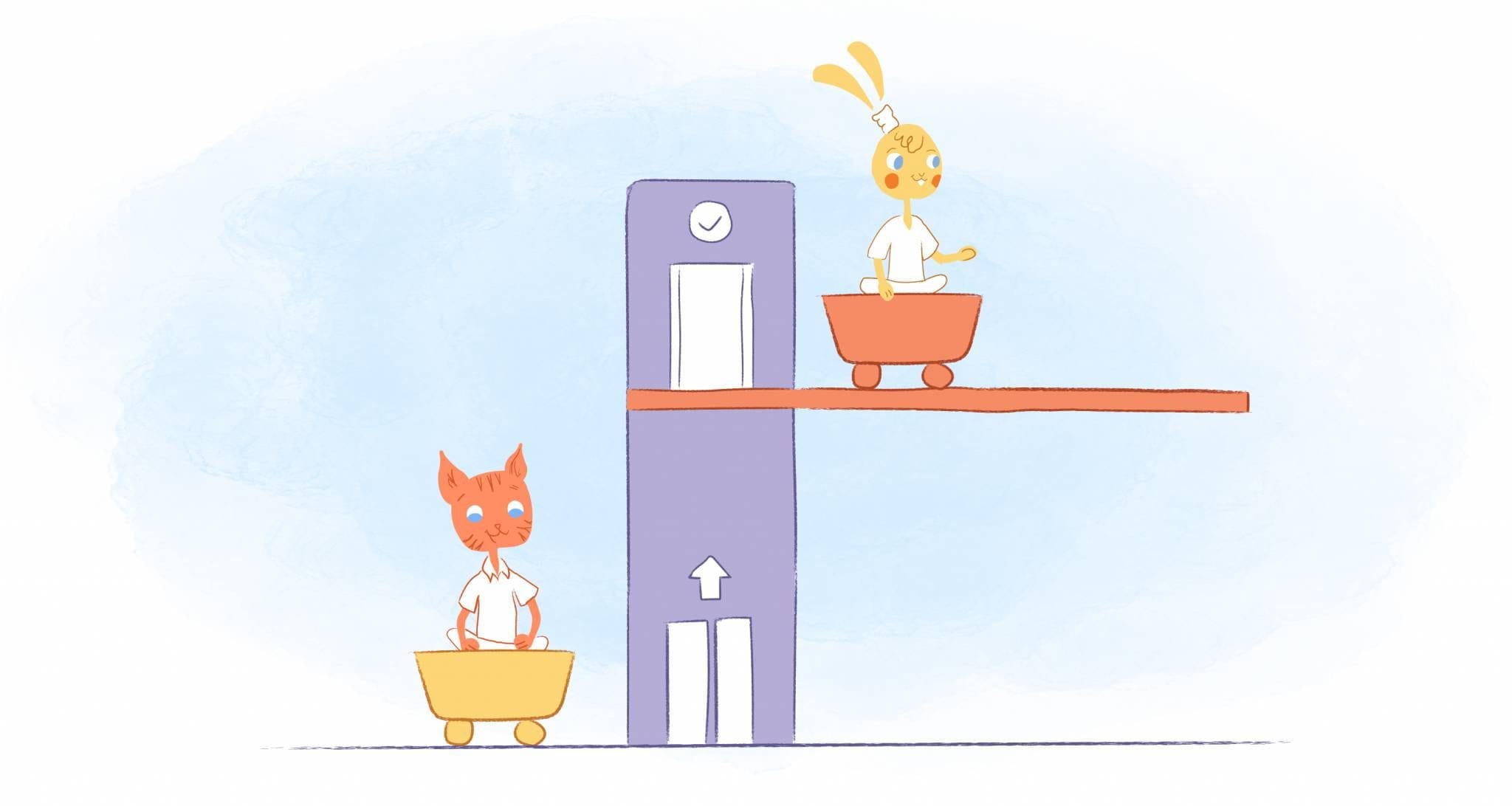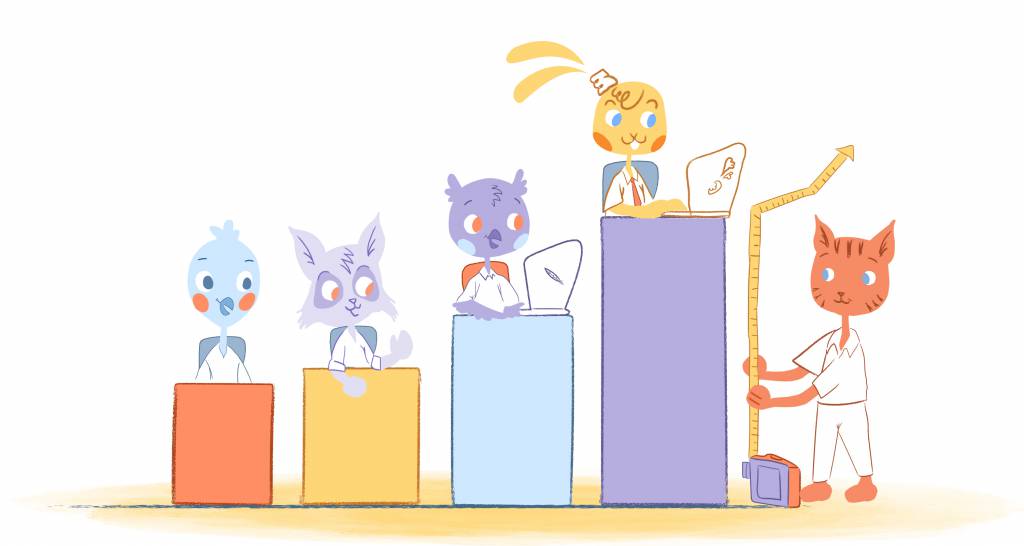

Habits. They’re a beautiful thing — just as long as your habits are healthy. For example, meditating, getting enough sleep, eating well, single-tasking, and walking tall are examples of habits that can improve your mental health. It’s essential to keep working towards being happy, healthy, and more productive. To makes these habits, here are nine mentally unhealthy, bad habits you’ll want to ditch.
Unhealthy habits, such as hitting the snooze button, procrastination, and watching too much TV, will have the opposite effect on you — both mentally and physically. That’s why you need to replace lousy habits as soon as you see them creep in, and replace them with better habits. And, that includes the following nine mentally unhealthy habits if you want to be healthy, happy, and productive.
1. Ditch Perfectionism.
Pursuing excellence is a healthy habit. But, there’s a big difference between giving it your best and chasing perfection. You can achieve excellence, but not perfection. As Stephen Hawking correctly put it, “One of the basic rules of the universe is that nothing is perfect. Perfection simply doesn’t exist. Without imperfection, neither you nor I would exist.”
Perfectionism doesn’t just exist, but it will prevent you from learning, growing, and experiencing new opportunities. It also harms your productivity and ultimately sets you up for failure. And, it can also harm your health and well-being.
“It’s something that cuts across everything, in terms of psychological problems,” Sarah Egan, a senior research fellow at the Curtin University in Perth, who specializes in perfectionism, eating disorders, and anxiety told the BBC. “There aren’t that many other things that do that.”
“There are studies that suggest that the higher the perfectionism is, the more psychological disorders you’re going to suffer.”
How can you overcome this mentally unhealthy habit? Well, different techniques work for other people. But, start by setting SMART goals that you can actually achieve. From there, stop comparing yourself to others and embrace feedback. And, try “hypothesis testing” where you make a small mistake to help you realize that it’s not the end of the world.
I just read an obituary my cousin sent me — to give me a hint about perfectionism. The obit was about a 27-year-old, talented, creative — and oh so beautiful wife, mother, and businesswoman. The writer of the woman’s life-sketch was so raw in her description of the “perfect” woman — who none of her family friends or associates noticed her suffering. The writer was so angry at this woman and blamed the death by suicide on her perfectionism. I’ve decided to look at perfectionism with a little more realistic view as an unhealthy habit and ask that you work to ditch this habit.
2. Catastrophizing the future.
I woke-up the other morning with a minor sore throat and occasional cough. There was also a little tightness in my chest. It’s COVID-19 I anxiously convinced myself. Nope. It was my allergies. Those types of “auto-thoughts” my friends, is an example of catastrophizing.
“When we catastrophize, we actually do two things,” explains Robin Galante in a Headspace article. The first is that “we predict the worst possible outcome.” Secondly, “we assume that if this outcome transpires, we won’t be able to cope, and it will be an absolute disaster.”
Neither is beneficial as this can “lead to high levels of stress, anxiety, and depression. Interestingly, it can also make physical pain worse,” elaborates Robin. So, how can we stop doing this to ourselves? Well, here are four strategies worth trying:
- Recognize it, write down, and review your thoughts. You’ll see that they’re just that, only thoughts.
- Ask questions that make you challenge your thoughts, “Is this something that I know to be true today?”
- Have faith in your ability to cope. Reflect on past experiences if something terrible happens. Not only will you realize that you survived, but this can also help you remember how you get through it.
- Be kind to yourself. A lot of us are guilty of catastrophizing. So, don’t beat yourself up. Forgive yourself “and give yourself space and the time to reflect and adjust.”
Those who read my writings know that I love Psychology Today and Entrepreneur Magazine. They have articles on every subject — of course, business — but also many topics about mental and physical health. Mainly because any part of being in business is affected by your overall health, but, you can reprogram yourself to be a positive person.
3. Burying your feelings.
“When we choose to bury our feelings, we act differently,” explains Barton Goldsmith Ph.D. “We may not make ourselves available to others and may withdraw, or just not fully engage when we do spend time with other people.” Sometimes, “we can react inappropriately because our emotions are pulling us in a different direction from where we want or need to go.”
Studies have also found that suppressing your emotions are linked to negative emotions like stress, anxiety, and depression. Even worse? It can also increase the risk of dying from heart disease.
“When you express how you really feel (in an appropriate manner), problems get solved, relationship issues get resolved, and life is easier,” adds Dr. Goldsmith. “In addition, you will like your life better because you’re not holding on to unhealed or confusing feelings.” I’ve found that affirmations can help sometimes.
How can you eliminate this destructive habit? First, recognize the feeling and find a healthy outlet. Writing, psychical activity, and talking to others are ways that you can release those feelings. When you’re levelheaded, own the feeling. If you believe that you were left out of an important decision, let others know how you feel by using “I” statements, such as “I feel hurt that I was not included in this important business decision.”
4. Holding yourself up to impossible standards.
“When you are constantly disappointed and annoyed with people around you, it could mean that you are having an unlucky break and not being treated the way you deserve,” writes Andrea Bonoir over at PsychCentral. “It could also mean that you are choosing ill-fitting people to accompany you throughout life.” Another more likely cause? “You have a set of overly rigid standards for other people’s behavior that you don’t apply to yourself.”
“Sometimes we are hardest on others when we see our own traits in them — the things that we don’t like to admit or examine,” adds Andrea. “Seeing these traits in others makes us uncomfortable.” It’s similar to the “hypocrite who crusades against sins far smaller than the ones he or she commits; it’s bound to create a disconnect within us that causes stress, hostility, and negativity.”
If you ever feel “chronically frustrated with someone, whether it’s the stranger in the left-hand turn lane or your messy roommate,” examine what’s truly going on. “Are you looking at the whole picture?” If not, “chose to reflect on the last time you made a mistake and the way it may have looked to others.” Being empathetic, “even when you don’t want to, can be a surprisingly powerful tool to take away the anger” and any other negative energy you’re experiencing.
Take care of your mental and physical health — especially at this difficult time of COVID.
5. Playing the blame game is a big unhealthy habit.
“You won’t hear a mentally strong person complaining over lost luggage or traffic jams,” states author and psychotherapist Amy Morin. “Instead, they focus on what they can control in their lives.” And, they’re well aware “that sometimes, the only thing they can control is their attitude.”
As George Washington Carver once said, “Ninety-nine percent of the failures come from people who have the habit of making excuses.” So, stop pointing fingers, hold yourself accountable, and spend your energy on what you have power over.
6. Comparing yourself negatively to others.
There’s a quote I love from Theodore Roosevelt. “Comparison is the thief of joy.”
Breaking this habit was a challenge for me for years. I would constantly compare myself to friends, family members, other business owners, and even people that I never met. Eventually, I felt like a failure. I kept questioning what I did wrong. And, I focused all of my time and energy on my weaknesses.
I then decided that I needed to forgive myself and focus on what I bring into the world. Knowing what my unique strengths and skills are, I was able to prioritize on what I can do and where I need to improve. Keep recommitting to getting better and let the rest go. Progress is a journey and not a destination.
7. Overusing technology.
Research shows that excessive smartphone use can lead to anxiety, chronic stress, and depression. Case in point, your alarm on your phone goes off bright and early. Instinctively, you reach for it. Next thing you know, you’re texting, emailing, checking your voice mail, or just scrolling the internet or social accounts. In other words, you’re checking what messages or news you’ve missed overnight. As a result — you’re setting yourself up for a stressful day.
The quick fix here is to get an old-school alarm so that you don’t get tempted in using your phone first thing in the morning. Beyond that, you need to give yourself frequent breaks from your smartphone. That may cause some people to get anxious, but it is possible. For example, you could block out three chunks of time each day to look at your inbox and social channels. Another idea would be to reserve blocks of time when you’re tech-free, as well as tech-free zones in your home.
8. Accumulating mental clutter is always an unhealthy habit.
Clutter as a whole increases stress decreases productivity and encourages unhealthy habits like overeating and insomnia. But, right now, I want to discuss mental clutter.
In a nutshell, this is anything that prevents you from thinking clearly. Obviously, that’s a problem when you’re trying to buckle down and get stuff done. Instead of being in the present, your mind is somewhere.
Thankfully, there are simple ways to clear brain fog.
The first would be to reduce overstimulation. Taking frequent breaks throughout the day, unplugging, and scaling back your to-do-lists are all effective ways to achieve this. Other strategies would be wiring your thoughts down so that they’re out of your head and becoming mindful.
9. Not practicing gratitude.
After studying the effects of gratitude on physical health, psychological well-being, and the relationships we have with others, Robert Emmons has found that gratitude comes with the following benefits:
- Boosts the immune system.
- It lowers blood pressure.
- Improves sleep.
- A higher level of positive feelings.
- More alert, alive, and awake.
- More helpful, generous, and compassionate.
- Feeling less lonely.
- More forgiving and outgoing.
Emmons believes that this is because gratitude allows us to celebrate the present and block toxic emotions. It also builds resistance and a higher sense of self-worth.
How can you cultivate gratitude? Emmons recommends writing in a gratitude journal and “practice counting your blessings on a regular basis.” You could also try using concrete reminders like “gratitude jars.” And, Emmons believes it’s most important to think outside of the box.
One of my cousins came to visit me and thought I need to start a gratitude list. She began the list for me and hung it on my wall. It’s on the backside of some birthday wrapping paper taped on the wall of my closet. I’ve had the crazy paper over nine months and I try to add at least one thing a day. I had looked for a year for the most perfect book to write my gratitude thoughts in — and that wrapping paper got me going. Stick something crazy on your wall and start your gratitude list.











Deanna Ritchie
Editor-in-Chief at Calendar. Former Editor-in-Chief and writer at Startup Grind. Freelance editor at Entrepreneur.com. Deanna loves to help build startups, and guide them to discover the business value of their online content and social media marketing.